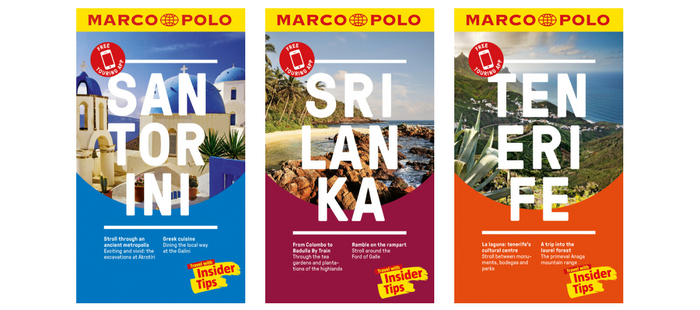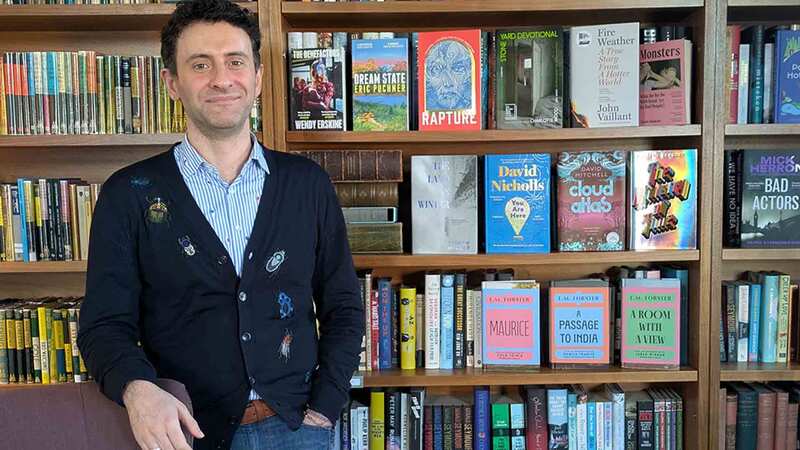You are viewing your 1 free article this month. Login to read more articles.
Right place, right time for nascent Marco Polo
"Do you really think this is a good idea?" These are hardly the words you want to hear when launching a new business, but Ian MacDonald says that it was almost the universal reaction when he revealed he would be setting up Marco Polo Travel Publishing back in 2011. People were not concerned that MacDonald didn’t know his onions—his background included sales rep and management positions at AA Publications, and founding maps and travel guides distributor GeoCenter—or that Marco Polo was under-resourced, as it was being backed by Stuttgart-based MairDumont, whose travel media portfolio includes Baedeker and Lonely Planet’s German-language publishing.
No, it was the timing. MacDonald says: "Looking at it from the outside, it wasn’t an auspicious moment to launch. We still had a post-9/11 travel slowdown, combined with the economic crisis. Plus, everyone was saying that all maps and travel content were going to be on your mobile."
Counterintuitively, the timing worked in Marco Polo’s favour. MacDonald explains: "As the travel business declined, a lot of publishers said, perhaps sensibly: ‘We’re not going to be doing any new editions, nor new series, and we’ll see how the market is in a few years’ time.’ So, when we came out and started presenting our books to retailers, they all said, ‘Something new in travel? Amazing.’ People responded so well; we couldn’t have planned this better in a way. Had we entered in a boom time I think [retailers] would have probably said: ‘We don’t need anything new’."
From a standing start, Marco Polo quickly established itself as a serious player in the UK’s travel sector, selling £903,000 through Nielsen BookScan in its launch year (2012), and charting in sixth place in the TCM’s travel-publisher league table last year. The keys to the success, MacDonald says, have been "well-designed and well- written books, great price points and the [strength of the] brand".

Naming the company after the Venetian explorer has been inspired, MacDonald says, as Marco Polo "just means travel". Strangely, it has been almost instantly venerable: customers are often telling the team that they believe the publisher is far older than its six years. The firm has also experienced an unexpected resonance in the US and Australian markets, as the Marco Polo game is popular with children. (It’s a form of tag played in swimming pools, involving kids repeatedly screeching, "Marco! Polo!")
Kicking off in 2018 is a massive project of revamping its handbooks (the pocket-sized guides, which have an r.r.p. of £7.99). It’s not just a few tweaks: the new range has a bold, fresh design, new jacket livery, clearer names on the spine, a map insert and the Marco Polo app can be downloaded for free with each purchase. The programme kicked off with 30 titles in January and will be rolled out to the 130-strong list over the next 18 months.
"This is something of a risk," MacDonald says. "But we had the same look for about five years and you need to freshen things up. If a customer walks into a Waterstones and there are five guides to Amsterdam, you need to give them a reason to choose yours."
Its competitors are not just other publishers’ books, but also the content on phones and on cars’ GPS devices. It’s part of the reason why Marco Polo is offering the app with its new handbook range (as the programme launched in January, MacDonald says it is still too early to determine usage rates). But also, after a very rough patch, things are levelling off for print. MacDonald says: "A lot of people said GPS would be the end of physical maps. And the market did collapse for a while, but then it flatlined and there was a little bit of growth. Now we are flat again. Same with travel guides. The difficult question is whether this is an age thing? Is there a cut-off point for a generation which has grown up in digital; does the idea of buying a physical map seem bizarre to them? Hopefully not. And everything we have seen thus far suggests that won’t be the case."
Though Marco Polo has just begun its new repackaging project, MacDonald is already thinking about the next one. He is soon to meet with his German colleagues to begin looking at another series revamp, which should roll out in a few years’ time. He says: "To grow we always have to be reinventing ourselves. We need to innovate, not to follow."









